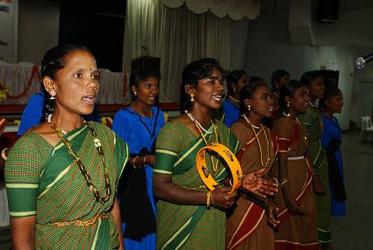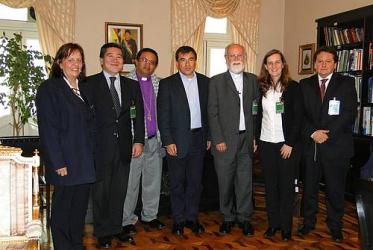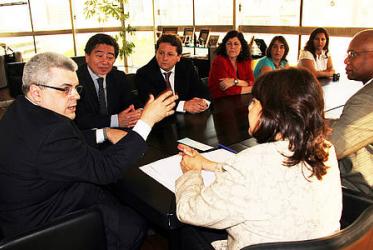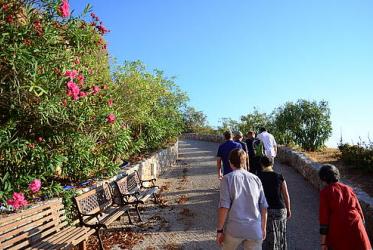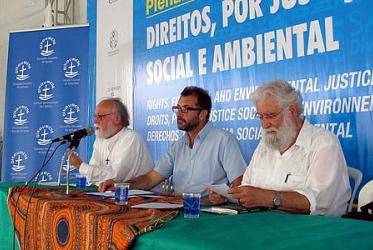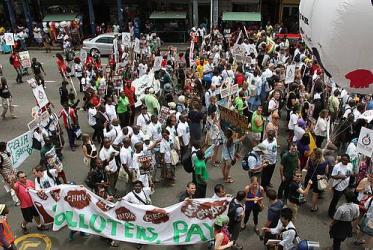Displaying 641 - 660 of 889
21 February 2013
Political solution is the only way to end Syria conflict
01 February 2013
Brazilian churches comfort the bereaved from Santa Maria fire
30 January 2013
Churches celebrate Week of Prayer for Christian Unity
23 January 2013
Statement on global economy delivered to Bolivia
15 January 2013
Protection of uprooted people is integral to religions
14 December 2012
PEAC to play a strong role in Colombian peace process
02 November 2012
WCC working group plans next steps in climate advocacy
04 October 2012
WCC and Latin American churches express hope for Colombia peace talks
10 September 2012
Altmann affirms signs of hope in the ecumenical movement
29 August 2012
WCC to highlight ethical perspectives at Rio+20
11 June 2012
Implementing PEAC initiatives in Colombia
07 May 2012
Towards ecumenical accompaniment in Colombia
03 May 2012


